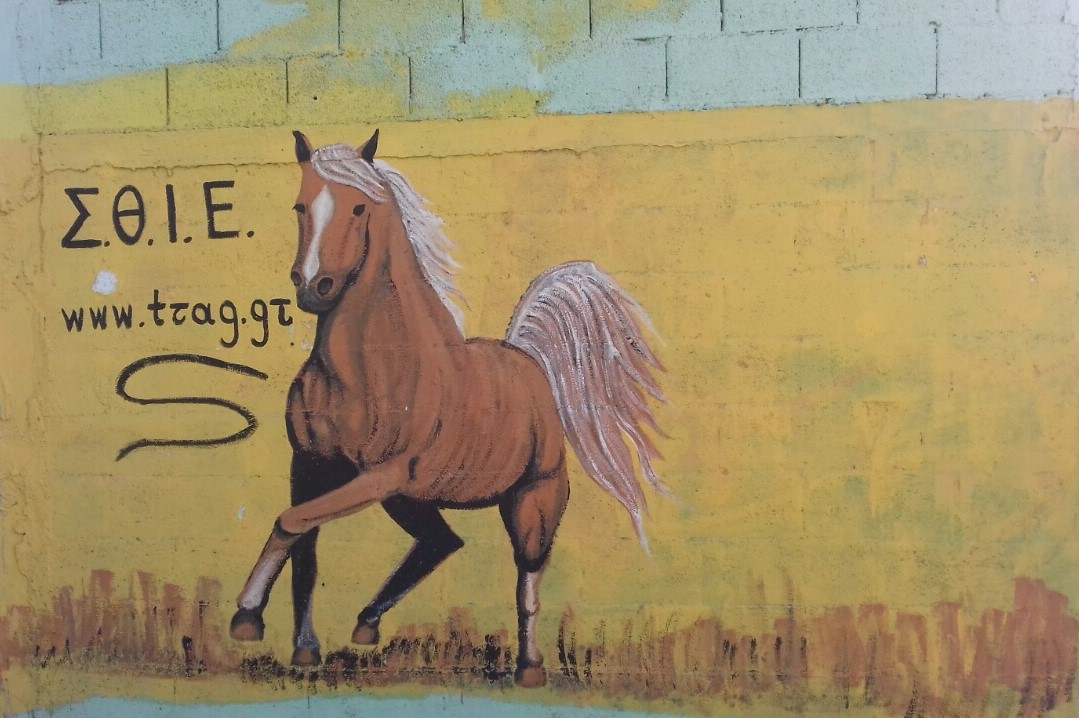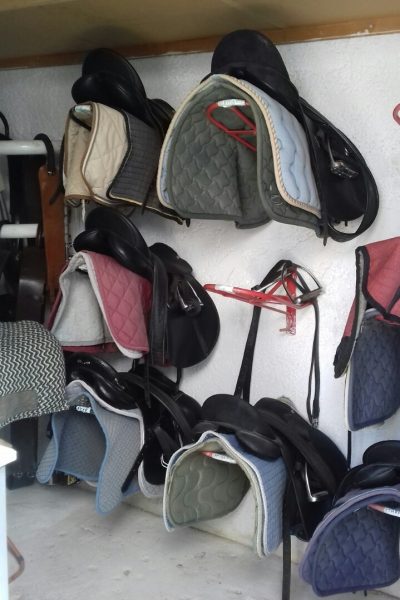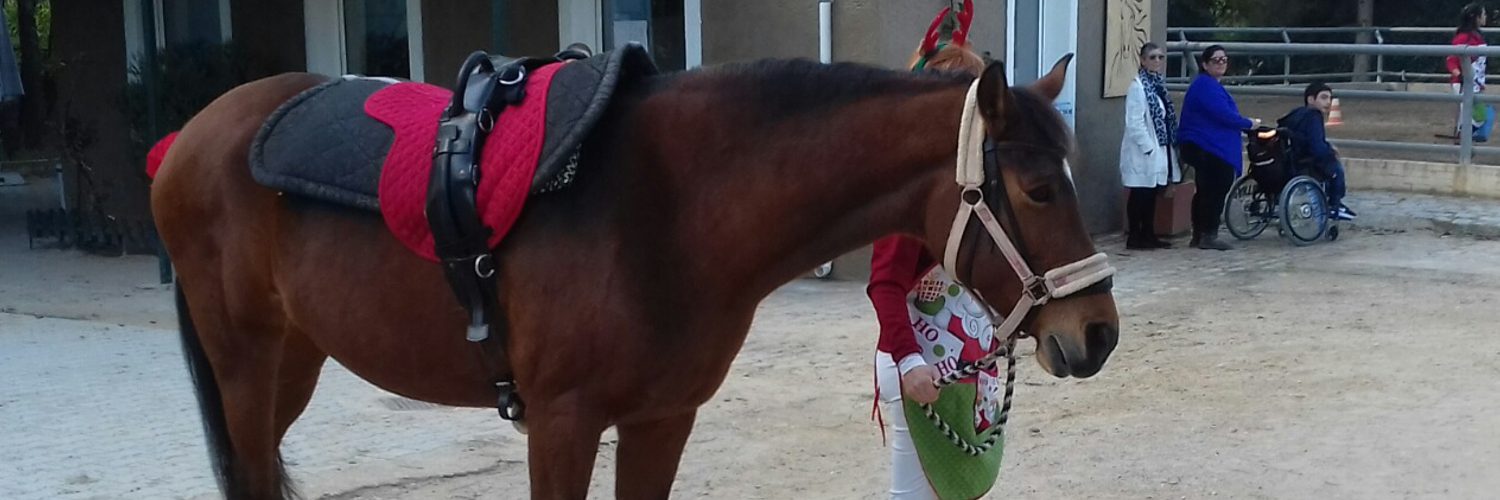An introduction to the Therapeutic Riding Association of Greece
I want to start by thanking Mrs Dimitra Karouzaki who welcomed us to her office. We were there to learn about the type of services provided at the centre, which specialises in the treatment of those with special needs. We also wanted to find out about the horses.
The Theraeputic Riding Association of Greece is a non-profit volunteer organisation whose aim is to treat people with various forms of disability.
A group of Greek and foreign women set it up in 1983; in 1992 it became a legal entity and began to function more formally. In 2004 it moved from the Riding Centre of Goudi to 10 Kanellopoulou Avenue, Athens.
Do you own the premises? How many horses do you have and how many people work here?
We do not own the premises; they were ceded to us by the army, so that we could accomplish our mission. Before 2004, we did not have the necessary specialisation to start offering rehabilitation classes and exercises, but from 2004 onwards, we attended seminars in order to become specialists in therapeutic riding. We started with three horses and now we have ten, we also have eight staff members including a stableman who comes from Pakistan, a psychologist, an occupational therapist, a special needs trainer, a social worker, a horse trainer and an office administrator. 170 people come for riding lessons and other treatment every week!
How can someone book a lesson?
We welcome telephone bookings, but unfortunately, we have a long waiting list. This is because we charge very little in comparison to other privately run establishments that offer the same services, plus we have the best trainers and therapists.
This means that we are always busy and many people benefit. In addition, we collaborate with other European associations to provide educational seminars for training instructors. We offer internships to university students and give them a certificate at the end. For all those reasons we sometimes delay in responding to applications. However, as soon as we have a vacancy we get in touch with the applicant and book a date for their therapy.
What are the most common forms of disability?
We have people with mobility issues, mental illness, autism, various syndromes and psychological conditions.
Now tell us something about the horses.
How does one care for a foal from birth to weaning?
A foal needs to stay with its mother till it is three years old. After weaning, we feed it, look after it and make sure it stays healthy. It needs longer care than racehorses do because it needs to mature fully and not be prone to illness. We then train it to make it suitable for therapeutic riding.
How is a horse trained?
We start by putting a saddle on the horse, followed by the halter on the face so that it can get used to it. Then we bring children close to it so that it can learn to be gentle with them. The horse needs to be calm, because if it is irritable and gets angry, the therapy won’t work. We use a light saddle so that the rider feels the movement of the horse.
Are all horses the same? Are some calm and others tense?
Horses can be calm or tense, but we always chose young horses so that we can train them and develop their character.
How do you look after the horses’ health and what implements to you use for cleaning?
We clean out the stables daily, put down sawdust and remove any dung. We give the dung to farmers who use it as natural manure. We also ensure that the horses stay outdoors for long periods in order for the stables to be well cleaned and for the horses to be in the sun.
What do you feed them?
We give them hay. It doesn’t have many vitamins but that doesn’t matter because they don’t jump hurdles.
How do you look after a sick horse?
We have our own vet who comes regularly to look after the horses. We vaccinate them every year, and we give them medicine to clear out their bowels should they get parasites.

What are the most common illnesses in horses?
There are two: parasites in the bowel and an inflammation that starts in the back and spreads to the legs that really affects a horses’ health.
How do you value a horse? What does its price depend on?
Race horses and show jumpers usually command very high prices. A horse used for therapeutic riding or rehabilitation costs anything between five and seven thousand euros.
What type of patient responds best to therapeutic riding and what benefits do they gain from it?
We have seen good results in patients with mobility issues, especially in their balance and physical independence. We have had cases of people who had been totally dependent, and who gained some independence in certain aspects of life. We have also managed to give significant assistance to people with autism by helping them to bring out their personality.
How many times a week does someone come for therapy?
It depends on the kind of therapy… usually once a week for half an hour. The session doesn’t just consist of riding. We also show them how the horses and stables are cleaned. We are kind to the horses so that they in turn are kind to the children.
With one half-hour session per week, how long does a child’s therapy last?
That depends on the level of disability. Some people, who are receiving physiotherapy elsewhere, have been coming to us for fifteen years. In those cases, the riding therapy is considered supplementary.
Does good communication with a horse result in better communication with people, as far as the child is concerned?
Yes, especially in the case of autistic children. We have noticed that the majority who have interacted well with a horse, then start to say a few words and begin to communicate with humans around them.
Can you tell us something of your experience with horses? Is it a hobby or a sport?
I started in this field for personal reasons because my daughter has mobility issues. I loved the work and that is why I continue doing it. I have been doing it for 28 years.
How can someone become a volunteer here?
You can apply by email to [email protected]. We look into what each volunteer can offer and we train him or her to walk next to the horse, clean it and look after its stable.










Add comment